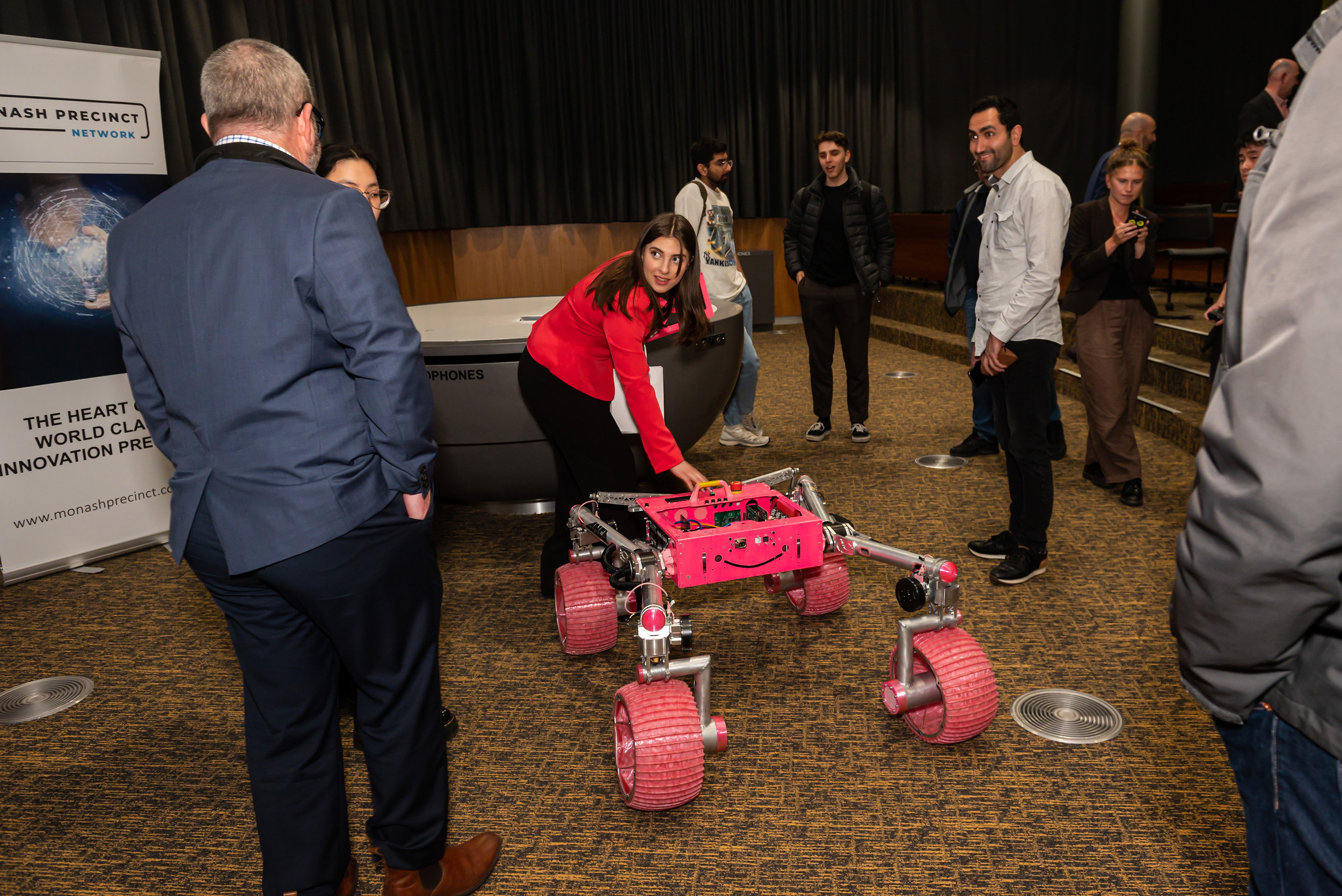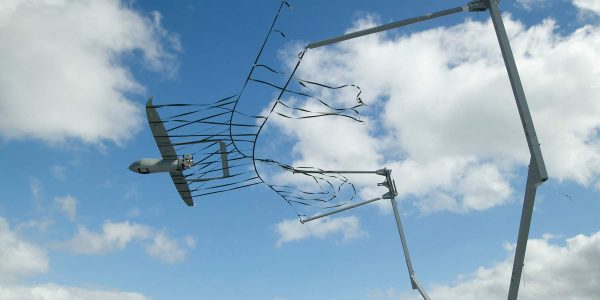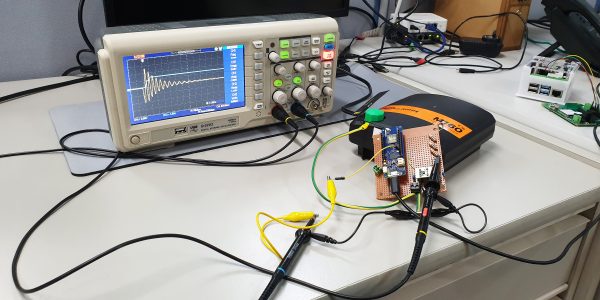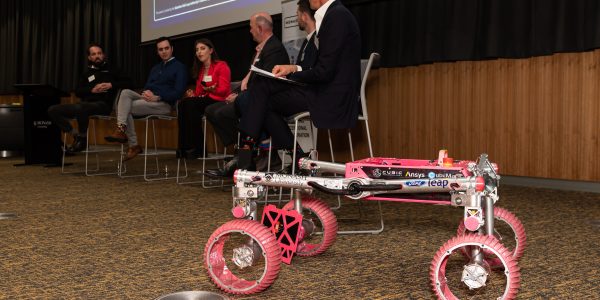The pink Monash University Mars Nova Rover seamlessly scaled a few stairs, manoeuvred around the floor, and brushed past attendees’ feet at our Monash: Mobility of the Future event on Tuesday 26 September 2023.
So after Parmis Hassani, Co-CEO of the Monash Nova Rover team and student at Monash University, spoke on the panel at the event – we were intrigued to know more.
The Monash Nova Rover team is made up of university students designing, fabricating, and testing the next generation of Mars rovers right here in Melbourne.
We excitedly asked about her experience leading the student-led project and what she sees herself doing in the future.
Parmis not only has a passion for STEM (Science, Technology, Engineering, and Mathematics), but also to inspire the next generation. Below, she tells us about her experiences and aspirations to further enhance her communication, leadership, and project management skills. And she offers a glimpse into the exciting world of technology and its impact on STEM-related careers.
What emerging technologies do you find most exciting, and how do you envision these innovations shaping the future of STEM-related careers?
There’s so many projects and innovations that have emerged and been developed in the last decade and continue to evolve today that it’s truly difficult for me to pick just one aspect or technology that excites me!
However, mechatronics and robotics, along with 3D printing, particularly capture my interest. These fields encompass a wide range of projects, from autonomous vehicles to realistic robotic arms, lunar and Martian rovers, and more. We can now 3D print houses and rocket components and create artificially intelligent robots that mimic human behaviour.
The evolving technology in these areas brings us closer to the futuristic scenes we see in sci-fi movies, like flying cars and robo-cops. For STEM related careers, it will become easier and easier for designers, engineers and architects to bring their ideas to life and improve their previous products and designs.
Tell us about the opportunities and experiences you’ve had as a participant in Monash Nova Rover that have deepened your passion for STEM, and how they have influenced your career goals.
Through Nova Rover I have had a plethora of opportunities that have heightened my passion for STEM.
Teaching robotics and coding to both high school and primary school students has been particularly rewarding. Witnessing their excitement as their ideas materialise has inspired me to continue teaching the younger generation about STEM and encourage them to pursue STEM career paths.
Furthermore, interacting with principal engineers from renowned organisations like Lockheed Martin, Boeing, and NASA has motivated me to work on my own projects outside of university and strengthen my skills in the field of space robotics. Attending tech expos and competitions, both internationally and domestically, has broadened my perspective on engineering problem-solving and the diversity of approaches taken by future engineers.
In the context of innovation and technology, how do you believe STEM careers can address global challenges, such as climate change or healthcare, and what role do you hope to play in tackling these issues?
STEM careers play a pivotal role in addressing global challenges, such as climate change and healthcare. They can contribute to solving these issues by developing cleaner energy sources, creating hydrogen and electric vehicles, and designing greener architecture.
Additionally, the deployment of robot workers can save lives in hazardous occupations like policing, firefighting, mining and more. These technological advancements also make it easier to care for the elderly and hospital patients, enabling them to live independently for longer. In my own career, I aspire to work on these emerging technologies, hoping to be at the forefront with a company of my own.
What advice do you have for fellow students entering STEM-based fields and how can they best prepare for the opportunities and challenges that lie ahead?
My advice for fellow students interested in pursuing careers in technology and innovation is to seize every opportunity, regardless of size or whether or not one of your friends is willing to do it with you or not!
Embark on personal projects that interest you, and don’t shy away from challenges, as they offer valuable learning experiences. Engage in school or university-based STEM clubs and teams, challenge yourself with new tasks, and expand your horizons, because you never know who you might meet and what you will learn!
What specific skills have you developed by being a member of the Monash Nova Rover team, and what skills are you looking to develop during the rest of your studies, and beyond university?
Having been on the team for 3 years, I’ve developed the skills to communicate effectively with people of different ages and perspectives. I’ve honed my public speaking abilities, enabling me to convey knowledge and opinions to a diverse audience. I’ve become proficient in using various software for creating versatile and integrated designs.
Furthermore, I have acquired a set of problem-solving skills, which allow me to approach engineering and worldly challenges from various angles.
In the future, I’m eager to continue developing my communication, leadership, and project management skills, which will serve me well in both my studies and beyond university.
Read more about Monash Nova Rover here.
Monash University is a member of Monash Precinct Network. Interested in becoming a member? View our memberships here.



